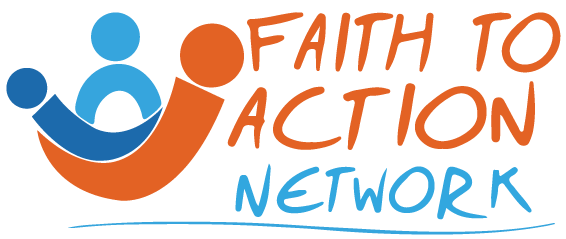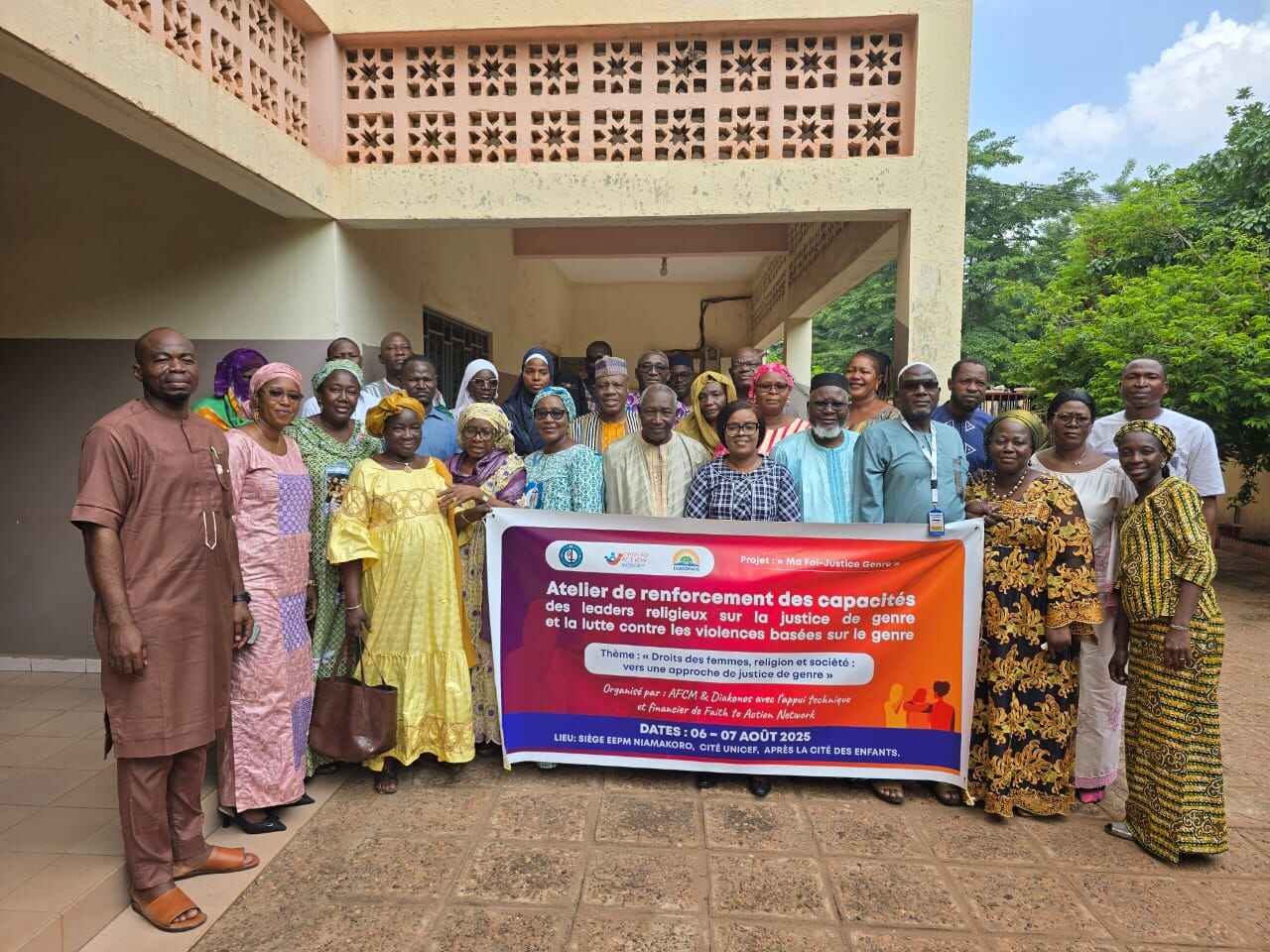By Shem Oluchiri.
Bamako, Mali – August 6, 2025
Faith to Action Network, in collaboration with national partners, has brought together religious leaders, faith actors, and community influencers from across Mali for a landmark National Capacity Strengthening Workshop under the “My Faith for Gender Justice” project.
The initiative, implemented in 11 West African countries including Mali, mobilizes faith communities as key agents of social change in the fight against gender-based violence (GBV). Over the course of the two-day workshop, participants are sharing experiences, building skills, and developing localized strategies to promote gender justice, dignity, and equal rights for women and girls.
Speaking at the opening, Ayoko Bahun Wilson, Faith to Action Network’s Programmes Manager for West Africa, underscored the urgency of collective action:
“Violence against women and girls is not inevitable. It can be prevented. And if it can be prevented, the question becomes: what must we do, what strategies must we adopt, and who must we involve to achieve real impact?”
Wilson highlighted that religious and traditional leaders hold unique influence in their communities — respected voices with the moral authority to challenge harmful norms, dismantle stereotypes, and inspire transformation.
Grounded in the belief that every person is created in the image of God, the workshop challenges gender stereotypes that restrict potential and perpetuate inequality. Participants are exploring ways to strengthen prevention, described as the most powerful tool for building peaceful, just, and inclusive communities.
Gender-based violence, Wilson noted, is a global crisis: one in three women worldwide has experienced physical or sexual violence. Beyond the statistics lie countless untold stories of pain, resilience, and hope. GBV denies women access to education, healthcare, and economic opportunities, fuelling cycles of poverty and inequality that weaken societies.
“Prevent. Act. Transform. This is our shared call,” Wilson urged. “Our commitment to equality and dignity must be a living testimony of our faith.”
Through interfaith solidarity and a shared moral vision, the Mali workshop is strengthening the resolve of faith leaders to break cycles of violence, change mindsets, and build a future where justice and peace prevail.



